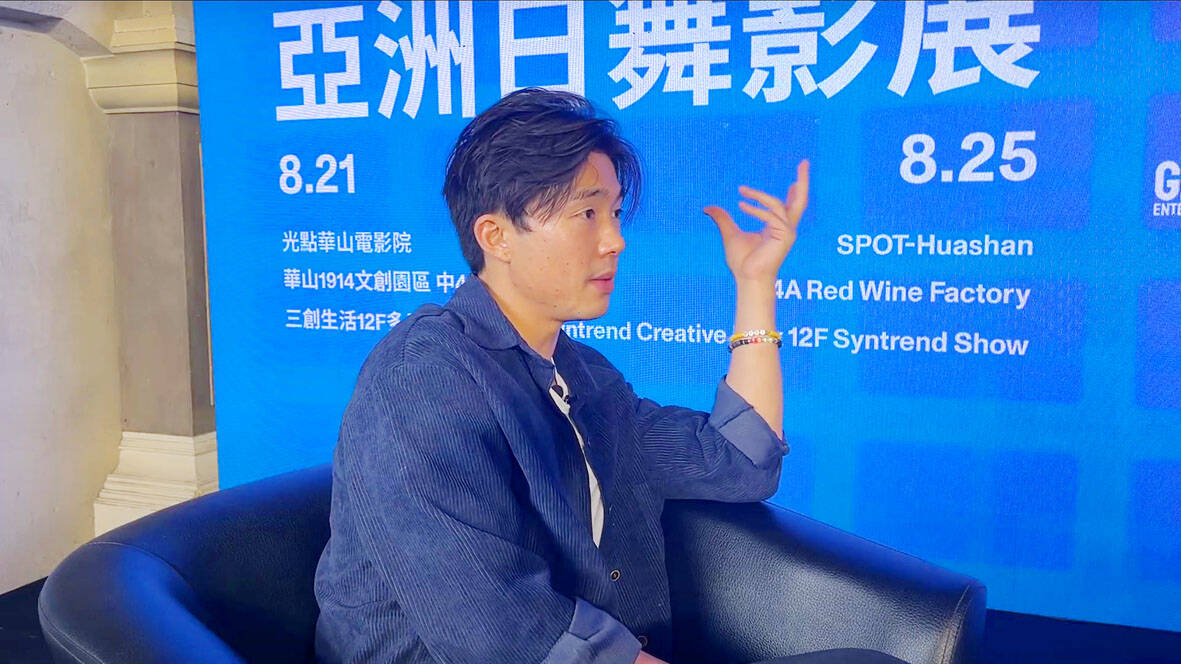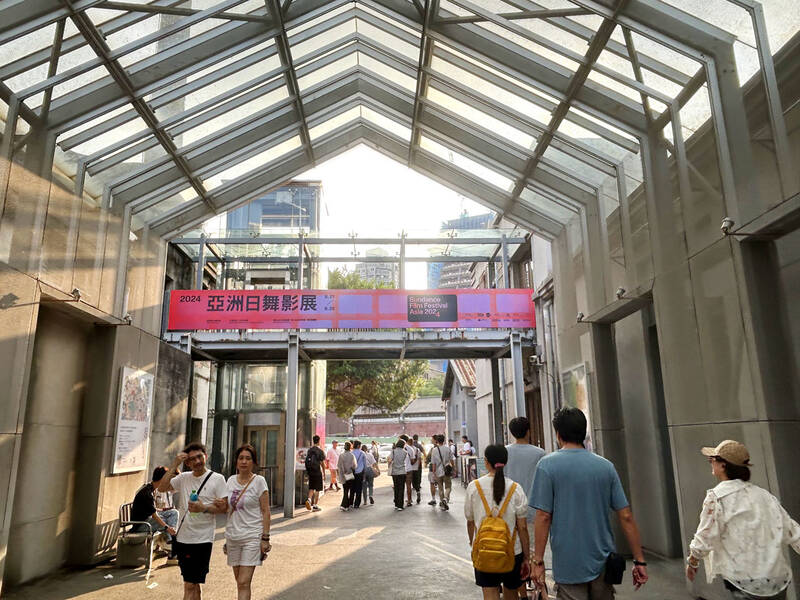“Once you get there, you think, that’s a little embarrassing or revealing or scary... but ultimately, I learned that is where the good stuff is,” says Taiwanese-American director Sean Wang about writing indie breakout Didi (弟弟), which debuted at Sundance Film Festival Asia 2024 in Taipei last month.
Didi is a heartwarming coming-of-age story centered on the Asian American experience. Not just a 2000s teenage nostalgia piece, but a raw, unflinching look at immigrant families and adolescent identity struggles. It quickly became the centerpiece of the event, striking a chord with not only those sharing similar backgrounds but anyone who’s ever felt out of place.
Told through the eyes of 13-year-old protagonist Wang Wang in 2008, the film conjured the eerily accurate nostalgia of Windows XP, instant messaging “:)” and slogan skater tees, a welcome throwback for all millennials. However, the movie’s stark reminder of the 2000s ubiquitous racial slurs and microaggressions jolts us back to a time when growing up “other” exacerbated the already surging hormones and crippling insecurities of the teenage ordeal.

Photo: Hollie Younger
Growing up in California, Wang Wang is split between the academic pressures of his Taiwanese mother and paternal grandmother, a screaming disconnect with his older sister and the desperate need to fit in with his peers — and American culture at large. Take Wang Wang introducing himself as “Chris” to impress some skater dudes and bluffing to his middle school crush that of course he’s seen E.T. and Star Wars.
WRITERS BLOCK
At Sundance Festival Asia, Wang spoke to the Taipei Times about his introspective writing process and the challenging feelings it brought to to the surface.

Photo: Hollie Younger
“A lot of the movie came from a personal place,” he said.
Wang grew up in the Bay Area with a similar family dynamic and background to the film’s protagonist, which was “deeply rooted [in the] immigrant community.” But he still suffered the movie’s central theme: the teenage affliction of never quite fitting in.
“I grew up around a lot of Asian American kids and that was a unique thing to feel like you don’t fully belong in a place where you feel like you should,” he said.

Photo: Hollie Younger
Utilizing Wang Wang’s friendship groups as the core cast, he compared the movie to Superbad or Stand By Me, in “the irreverence of the friendships and also how poignant they can be.”
But where the movie shines is the emotive and nuanced portrayal of family dynamics between first-generation immigrant children and their parents.
Powerhouse Joan Chen, star of The Last Emperor, played Wang Wang’s mother.
“The entire mother-son storyline was something I was hesitant to explore at first,” Wang said because it demanded difficult conversations with his own mother, who played a role in the writing of the film.
Didi conveys the powerful interplay of native and local languages in a multi-generational immigrant household. The interspersing of English words into Mandarin Chinese by his Taiwanese mother feels natural, because it is. Wang asked himself “how would my mom say it,” eventually inviting his own mom to script readings to find out.
DIRECTORIAL DEBUT
On the third day of the Sundance event, Wang appeared among a vibrant lineup of Hollywood’s newest directorial talent at the “Working with Actors” panel.
Wang told the panel that he specifically cast kids with little to no acting experience and chose his protagonist’s diverse friend group based on chemistry tests. The kids were allowed to run off script, resulting in the desired authenticity and capturing genuine reactions to timeless teenage experiences like kissing in a playground.
Between teenaged newcomers and seasoned pros like Joan Chen, Wang said his directorial brain felt “split in two,” a dichotomy unseen in the movie’s seamless character building.
Wang used his own life as art, saying much of the movie’s messaging is, “everyone has things they’re embarrassed about or ashamed about.” By daring to dive deep into his own psyche and childhood memories, then “chase that, unpack it, translate it into something that works for the movie,” Didi is ultimately defined by this almost-biographic dimension.
In the final anecdote of the panel, Wang recalled asking his lead actor and teenage self, Izaac Wang, how he felt about wrapping up filming. The 16-year-old responded: “Wang Wang is a loser.”

June 9 to June 15 A photo of two men riding trendy high-wheel Penny-Farthing bicycles past a Qing Dynasty gate aptly captures the essence of Taipei in 1897 — a newly colonized city on the cusp of great change. The Japanese began making significant modifications to the cityscape in 1899, tearing down Qing-era structures, widening boulevards and installing Western-style infrastructure and buildings. The photographer, Minosuke Imamura, only spent a year in Taiwan as a cartographer for the governor-general’s office, but he left behind a treasure trove of 130 images showing life at the onset of Japanese rule, spanning July 1897 to

One of the most important gripes that Taiwanese have about the Democratic Progressive Party (DPP) is that it has failed to deliver concretely on higher wages, housing prices and other bread-and-butter issues. The parallel complaint is that the DPP cares only about glamor issues, such as removing markers of Chinese Nationalist Party (KMT) colonialism by renaming them, or what the KMT codes as “de-Sinification.” Once again, as a critical election looms, the DPP is presenting evidence for that charge. The KMT was quick to jump on the recent proposal of the Ministry of the Interior (MOI) to rename roads that symbolize

On the evening of June 1, Control Yuan Secretary-General Lee Chun-yi (李俊俋) apologized and resigned in disgrace. His crime was instructing his driver to use a Control Yuan vehicle to transport his dog to a pet grooming salon. The Control Yuan is the government branch that investigates, audits and impeaches government officials for, among other things, misuse of government funds, so his misuse of a government vehicle was highly inappropriate. If this story were told to anyone living in the golden era of swaggering gangsters, flashy nouveau riche businessmen, and corrupt “black gold” politics of the 1980s and 1990s, they would have laughed.

Imagine being able to visit a museum and examine up close thousand-year-old pottery, revel alone in jewelry from centuries past, or peer inside a Versace bag. Now London’s V&A has launched a revolutionary new exhibition space, where visitors can choose from some 250,000 objects, order something they want to spend time looking at and have it delivered to a room for a private viewing. Most museums have thousands of precious and historic items hidden away in their stores, which the public never gets to see or enjoy. But the V&A Storehouse, which opened on May 31 in a converted warehouse, has come up